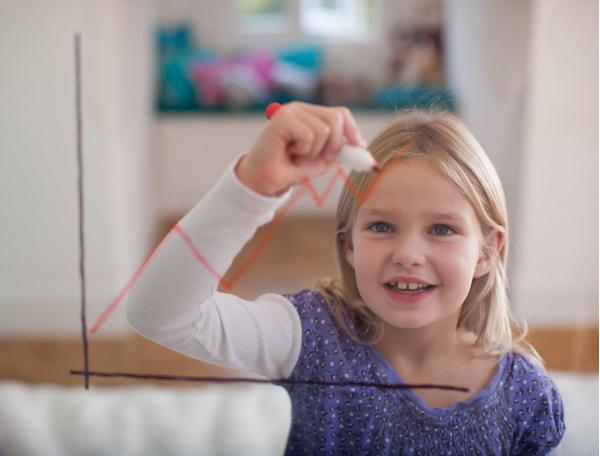Data is power
10 - 11 years
Ideas to help your child practise their numeracy skills - with you, and online

Developed in partnership with Education Services Australia
The Australian Curriculum sets the goal for what all students should learn as they progress through their school life. Skills in the Year 5-6 curriculum include:
- conducting data investigations and using a variety of methods to organise and display data
- planning investigations and collecting data
- selecting and constructing displays, including column graphs, dot plots and tables, with and without the use of digital technologies
- describing and interpreting two-way tables, double column graphs and sector graphs
- interpreting data sets in context
- evaluating the use of data in the media.
It’s easy to help your child practise these skills as part of everyday life – just use these simple ideas.
Get the facts straight
Data is often used in the media, so it’s important for your child to develop good skills at using and interpreting data, and spotting when data is misreported or misused. Give your child practice through ideas such as these:
- discuss data and graphs that are reported in the news and documentaries
Where did the data come from?
Does the data show the whole story?
What conclusion is being drawn from the data? Does the data actually support that conclusion? - draw attention to data used in ads
This ad says that 83% of users recommend their brand. Does that mean it's better than the other brands? Maybe users would recommend other brands as well. - read books and magazines and watch TV programs that analyse the use (and misuse) of data – eg consumer affairs exposes, or consumer affairs shows that combine comedy and education
- have fun, and make your child aware of how data can be used and abused, by making up obviously fabricated facts when you are trying to get your child to do something (and encouraging your child to do the same)
Studies show that four out of five children who never clean their room report that they are ‘rarely’ happy during the holidays.
That's true Dad, but did you know that 95% of children who receive less than $1000 a week in pocket money fail to graduate from primary school? - play As the facts clearly show:
Think of a crazy proposition.
Find or make up some ‘facts’ to support your position.
Use those facts to convince the other person of your argument (this is great practise at persuasive speaking, critical thinking and debating.
Go online
For online reinforcement, Leisure survey will give your child practice at:
- planning, organising and interpreting data sets and evaluating whether statements are supported by the data.
Getting your facts straight about water use will give your child practice at:
- making comparisons using column and sector (circle) graphs.
[5-6Learning]
Toolkits








